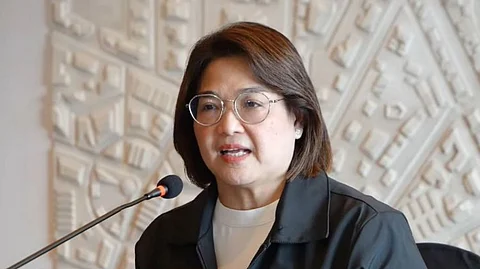
- NEWS
- the EDIT
- COMMENTARY
- BUSINESS
- LIFE
- SHOW
- ACTION
- GLOBAL GOALS
- SNAPS
- DYARYO TIRADA
- MORE

Malacañang on Thursday reaffirmed its legal stance on the proposed measure mandating annual drug testing for all government officials and employees, including the President, citing a prior Supreme Court (SC) ruling that such a policy would violate the constitutional right to privacy.
Presidential Communications Undersecretary and Palace Press Officer Atty. Claire Castro responded to the recent remarks of Senator Robinhood Padilla’s Chief of Staff, Atty. Rudolf Philip Jurado, who suggested she revisit the Social Justice Society vs. Dangerous Drugs Board case to better understand Senate Bill 1200.
“With all due respect to Usec Claire, she should read again the case she cited (Social Justice Society vs Dangerous Drugs Board) and Senate Bill No. 1200 filed by Sen Robin Padilla,” atty Jurado said in a statement.
In response, Castro stressed that the Social Justice Society ruling clearly stated that only random and suspicionless drug testing is constitutional.
“With due respect to Atty. Jurado, nabasa po natin ito at pinapatungkulan rito na lehitimo at constitutional ay ang random drug testing (we have read it and this tackles the legitimacy and constitutionality of the random drug testing),” said Castro, referring to the 2008 SC ruling in Social Justice Society v. Dangerous Drugs Board.
“Ang sabi sa decision, ‘the operative concept in mandatory drug testing is randomness and suspicion-less’ (The decision stated that ‘the operative concepts in mandatory drug testing are randomness and suspicion-less’),” she added.
Castro noted that the ruling distinguished this from mandatory testing imposed on individuals charged with a crime, where the right to privacy is deemed waived.”
“Kinumpara ito sa mga persons charged with crimes na pinarerequire ng mandatory drug testing kung saan they will not be ‘randomly picked’ at sa pagkakataon na ganito, na waive nila ang right to privacy (This was compared to persons charged with crimes who are required to undergo mandatory drug testing, where they are not 'randomly picked,’ and in such cases, they are considered to have waived their right to privacy),” she said.
Castro pointed out that Padilla’s proposal, which mandates blanket annual drug testing for all government officials and employees, would fall under the category of “universal”, not “random” testing.
“Kaya universal drug testing ay labag the constitution lalo na sa right to privacy kumpara sa random drug testing (Therefore, universal drug testing is unconstitutional, especially in relation to the right to privacy, compared to random drug testing),” she explained.
Castro said she is just citing the existing jurisprudence regarding universal drug testing.
“Kung nais nilang ituloy iyan, nasa kanila naman po yan. Sinasabi lang po natin kung ano ang jurisprudence patungkol sa universal drug testing (If they want to pursue that, that’s up to them. We’re simply stating what the jurisprudence says regarding universal drug testing),” she stressed.
